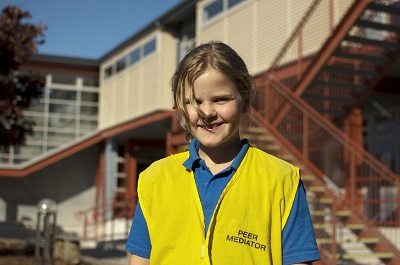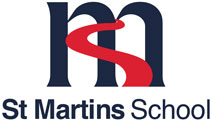Restorative Practices
We believe that school should be a positive and enjoyable experience, free from all forms of harassment. With this in mind, St Martins School has adopted a Restorative Approach to behaviour management.
What is Restorative Practice?
Restorative practices are innovative ways to:
- build caring communities around students whilst not accepting harmful behaviour. In other words, supporting people to take responsibility for their actions and repair any harm that’s been done.
- involve all those affected by the conflict to find another way forward, reducing anger and resentment.
- recognise and encourage the contributions that staff, parents, carers and the community make in promoting great relationships that enable better behaviour and better learning at St Martins.
 Benefits of the Restorative Practices Approach
Benefits of the Restorative Practices Approach
- Makes school a safer, happier place where students talents are recognised and rewarded
- Raises attendance levels
- Reduces incidences of bullying
- Provides greater opportunities for support and mediation when conflict occurs
Restorative Practices at St Martins
- Build positive relationships
- Build caring communities
- Maintain safe and happy learning environments
- Reduce bullying
- Build personal sense of identity, self reliance, and self esteem
- Support students and their families
- Build classrooms as communities
- Build social and emotional competence
- Make young people accountable to each other
Peer Mediation
As part of the school’s approach to empower individuals to build positive, caring relationships with others, at St Martins School, students have the opportunity to be trained to help solve minor conflicts in the school playground. Children are trained in the role of mediator and assist during break times when minor issues arise. Peer mediators can be identified by the bright yellow jackets they wear.



